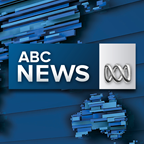
Posted
The invention of the internet offered the chance to unite a fractured world and give voice to the voiceless.
But years on, it has also bred a more sinister subculture of bullying, cyber abuse and the faceless "troll" who uses anonymity to hurl insults at victims.
A new six-part TV series, Cyber Hate — written, produced and presented by author Tara Moss — is now turning the spotlight on the issue and looking at the science and impact behind the problem.
So how bad is this?
A single message one Twitter user wrote to Moss crystallised the problem.
"Have you no shame whore? Lying about being raped to sell your garbage book? I hope you do get raped for your lies," someone wrote after she spoke about being a survivor of sexual violence.
For Moss, it served to highlight how real online abuse was.
"It is often said that the internet is not real life. But that isn't true," she said.
"Things said online are sent by real people and received by real people."
Moss has been outspoken about online abuse for a number of years, and in researching the topic for the TV series found how widespread it was.
She said one study she was involved in last year found about three-quarters of Australians aged under 30 experienced online abuse.
And about one in 10 Australian women aged under 30 had experienced "revenge porn", where partners post sexual images of them online without their permission.
"In 2017 we can't continue to pretend this isn't a major issue," Moss told ABC News Breakfast.
Is it getting worse?
The Australian Online Hate Prevention Institute says yes.
In a submission to the Federal Government's 2016 inquiry into freedom of speech, the institute said online abuse had reached a new low.
"[The year] 2015 saw a greater normalisation of hate speech in society than in previous years," the submission read.
"Where previously a person might make a vague negative allusion to race, religion, gender or sexuality, by the end of 2015 the comments on social media were blatant and overt.
What's more, the institute said many people were now no longer hiding behind fake names.
"By the end of 2015 many people felt their hate was acceptable and were comfortable posting it under their real name or their regular social media account."
Moss said the responses needed to evolve as well, and the impacts better understood.
"We tend to think of it as just bad words, [and] people who are experiencing this are still getting response like, 'Just switch off for a while'," she said.
This is having a physical effect on victims
The psychological effect of online abuse can be readily understood, but Moss said she was surprised to discover the physical toll it took on her body.
In an experiment with a senior research fellow from Neuroscience Research Australia, Sylvia Gustin, Moss said her body responded to abuse as if it was under threat.
"She put me in an MRI and had a look at my brain and my autonomic nervous system, to look at how I responded when I was being abused online," Moss said.
"In a scenario like that, because I was familiar with the words — it's abuse I have received before, I know the scientists in the room aren't actually abusing me, they don't mean the words — it was a surprise to me that my body, though, really wasn't able to look at it in such an abstract way."
 Photo:
An MRI scan showed Tara Moss just how much her body reacted to bullying. (Supplied: Cyber Hate with Tara Moss)
Photo:
An MRI scan showed Tara Moss just how much her body reacted to bullying. (Supplied: Cyber Hate with Tara Moss)
The finding echoes an earlier study by the American Academy of Pediatrics, which found children were prone to headaches, stomach pain, fatigue and bedwetting after they were bullied.
"Certainly long-term there is a potential cumulative effect of this kind of ongoing emotional abuse and cyber bullying," Moss said.
"We are seeing that in tragic cases that, of course, we have been reading about."
What is being done about this?
Moss hopes that the users of social media will be able to instigate some change along the way, and she is hopeful of progress.
"One of the drivers behind that change is actually the bottom line in some cases," she said.
"As users are switching off, because they don't feel safe, they don't feel like these are safe spaces for them to occupy, they are actually starting to leave their accounts and leave some social media spaces."
Moss also hoped some companies would take an altruistic approach and crack down on abuse, and there are some noteworthy examples of this happening.
Last year, Twitter permanently banned conservative writer Milo Yiannopoulos over tweets regarding Ghostbusters actor Leslie Jones. And it established Trust and Safety Council in an attempt to find the balance between protecting free speech and limiting abuse.
Closer to home, there are also laws in place to handle serious cases on online abuse.
Under the Commonwealth Criminal Code Act 1995 it is an offence to use the internet or social media to menace, harass or cause offence, and the maximum penalty is three years in jail.
There are also stalking offences in each state and territory.
"We have to recognise that ... it's integrated into our everyday life — there's no longer an idea that there's this sort of real life and then there is online spaces," Moss said.
Cyber Hate With Tara Moss is available on ABC iview and will air on ABC2 at 9:30pm tonight.
Topics: internet-culture, bullying, television, australia









 Add Category
Add Category
